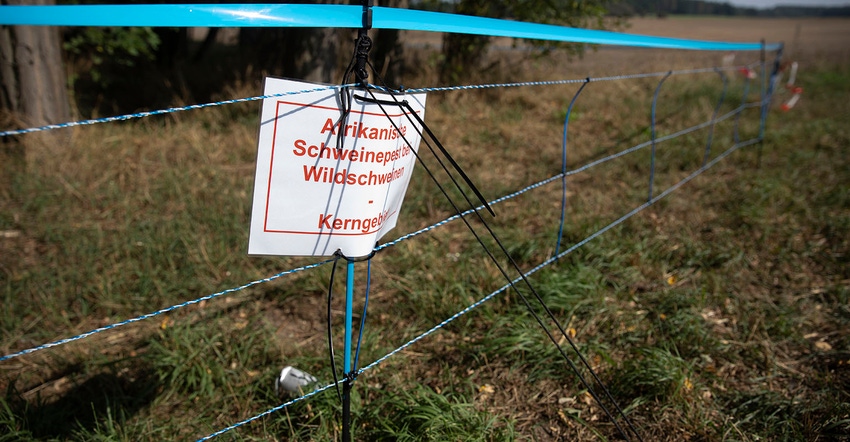
By Megan Durisin
Germany is going to extreme lengths to stop a deadly pig virus from wrecking Europe’s biggest pork industry.
After discovering its first-ever cases of African swine fever this month, the country is trying to keep the outbreak contained to wild boar near the Polish border and away from livestock farms further west. To do that, it’s building miles of fences, using search dogs, drones and helicopters with thermal-imaging tech to scour the land and offering 110-euro ($128) rewards for carcasses.
While there have been just 34 cases so far within a small radius, the stakes are huge. German pork exports outside the European Union -- a $2.4 billion industry -- have already been hit, including a ban on sales to top customer China. Prices have slumped to a four-year low, and losses could mount if the outbreak isn’t controlled.
China itself is an example of how devastating the virus, which is highly contagious but not harmful to humans, can be. It lost a staggering third of its herd since 2018 -- wiping out more than 100 million animals -- after an outbreak there.
“If it were to spread widely, the risk would obviously be very serious,” said Max Green, a meat and livestock analyst at IHS Markit. “The crucial thing now is to identify exactly how far it’s spread already.”
The ASF cases are another blow to Germany’s meat industry, after the Covid-19 crisis caused outbreaks at slaughterhouses and closed restaurants. To protect exports, farm groups want buyers to restrict purchases from affected areas, rather than the whole country, a strategy that depends on keeping infections localized.
Germany raises most of its 25 million pigs indoors, so there’s a low chance that farms will fall victim, Green said. While Eastern Europe has grappled to control ASF for years, Belgium and the Czech Republic managed to keep recent outbreaks confined and away from more modern farming operations.
For now, Germany is focusing on keeping cases contained to the Brandenburg area so it can keep selling within the important EU market and maintain what’s left of its export business elsewhere.
Dogs trained to sniff out dead boar started searching on Monday, and the government secured a 150-square-kilometer (58 square miles) area with a temporary electric fence. Hunting will also be stepped up.
A permanent fence will also come along the state’s border with Poland, although Agriculture Minister Julia Kloeckner cautioned they “are never completely airtight.”
”We have a long stretch ahead of us,” Kloeckner said at a briefing Friday. “It’s no sprint, it’s a marathon.”
--With assistance from Raymond Colitt.
© 2020 Bloomberg L.P.
About the Author(s)
You May Also Like




